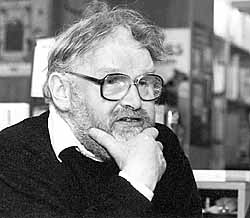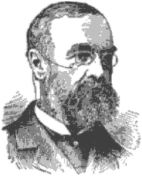A Quote by N. T. Wright
The imminent demise of the church has been predicted since the middle of the 18th century. This is the regular secular mantra if churchgoing declines. I could take you to plenty of churches that are full to bursting and new churches being built.
Related Quotes
But I must add that the U.S. government must not, as by this order, undertake to run the churches. When an individual, in a church or out of it, becomes dangerous to the public interest, he must be checked; but let the churches, as such take care of themselves. It will not do for the U.S. to appoint Trustees, Supervisors, or other agents for the churches.
I have been to non-denominational churches like National Community Church in Washington D.C., but I've also gone to Lake Placid Baptist and a slew of other churches. I got baptized with my fiancé (Nic Taylor) this last year at Saranac Lake Baptist Church (in New York), so maybe that makes us Baptist. But for me, it's really been about my relationship with Christ and not so much about a denomination or a label.
What James Madison and the other men of his generation had in mind when they wrote the First Amendment was that there should be no official relationship of any character between government and any church or many churches, and no levying of taxes for the support of any church, or many churches, or all churches, or any institution conducted by any of them.
The churches that are growing and thriving are churches that I would call evangelical and orthodox for the most part in their beliefs. They are churches that tend to evangelize ... and encourage their people to share their faith. These are the churches that are actually growing. The ones that are shrinking are the ones that are compromising and watering down what the word of God says.
There could be no more powerful argument against mixing religion and government than the success of independent African American churches in placing racial segregation and discrimination on a reluctant nation's social agenda. Would black churches have been able to take the lead in the struggle had they been dependent on funds doled out for 'faith-based initiatives' . . . ?
I think that the church in America today is so obsessed with being practical, relevant, helpful, successful, and perhaps well-liked that it nearly mirrors the world itself. Aside from the packaging, there is nothing that cannot be found in most churches today that could not be satisfied by any number of secular programs and self-help groups.
Many churches of all persuasions are hiring research agencies to poll neighborhoods, asking what kind of church they prefer. Then the local churches design themselves to fit the desires of the people. True faith in God that demands selflessness is being replaced by trendy religion that serves the selfish.
There was the strangest combination of church influence against me. Baker is a Campbellite; and therefore, as I suppose with few exceptions, got all of that Church. My wife had some relations in the Presbyterian churches, and some in the Episcopal churches; and therefore, wherever it would tell, I was set down as either one or the other, while it was everywhere contended that no Christian ought to vote for me because I belonged to no Church, and was suspected of being a Deist and had talked of fighting a duel.
The Church is not segregated by region or cities. That's an antiquated view of the world. We are united with churches all over the world working toward common goals based on shared values. Mosaic is one of the most racially diverse churches on the planet. Our community and extended Church family is global and completely integrated.




































